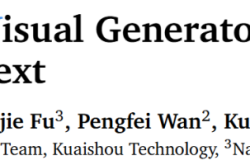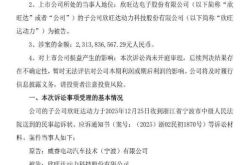Refund only harms both merchants and consumers, with only the benefit going to the 'wool-gatherers'
![]() 09/01 2024
09/01 2024
![]() 540
540
Refund only was first implemented by budget e-commerce platforms, and was later followed by two other e-commerce platforms. However, in practical use, this policy has significantly increased the number of 'stores' that merchants have had to close. For the general consumer, the refund-only process is difficult to navigate and not easily accessible, with the primary beneficiaries being the 'wool-gatherers'.

I have also tried to request a refund only. On a legitimate e-commerce platform, for high-value items, the platform directly remind that high-value items do not support refunds only, while low-value items require communication with the merchant. Similarly, on a budget e-commerce platform, refunds only are also subject to specific conditions and are not easily achievable.
For low-value items, consumers can indeed easily obtain a refund only. However, for consumers, spending significant time navigating through various conditions to obtain a benefit of less than 10 yuan is not a worthwhile trade-off. In such cases, most consumers tend to give up rather than delve into the specific conditions.
When shopping on a budget e-commerce platform, many consumers choose to bear the loss themselves rather than causing additional trouble. They are aware of the quality standards of budget e-commerce platforms and are willing to accept the associated risks.
In fact, isn't it precisely because budget e-commerce platforms capitalize on consumers' aversion to trouble that they have so many counterfeit and shoddy products? I once purchased a Lux shower gel from such a platform that looked almost identical to the genuine product, even down to the branding, with only a slight difference in the name. When I complained to the platform, they provided certificates proving the authenticity of the product.

I also once purchased crayfish tails from a budget e-commerce platform, only to find that the ice had melted upon delivery, and the water weight accounted for up to 70% of the total. In contrast, the crayfish tails I purchased from a supermarket accounted for about 80% of the total weight. This is the price of budget shopping.
In these cases, I ultimately chose to accept the loss as the fake Lux shower gel cost only 9.9 yuan, and the crayfish tails were also 9.9 yuan. Pursuing a refund would have been time-consuming and might not have resulted in any recovery, making it not worth the effort.
However, for the 'wool-gatherers,' these refund-only loopholes are a different story. They have formed a complete industry chain, where each refund might only yield 3-5 yuan. But with their proficiency, they can complete the entire process in just 1-2 minutes. By accumulating these small amounts, they can quickly identify merchants who are vulnerable to refund-only requests and even use this as leverage to extract additional benefits from merchants, resulting in significant profits.
Some merchants have even created tutorials on this and sold them to others, generating another source of income. With the rapid spread of information on the internet and a population of 1.4 billion in China, even if only 10,000 tutorials are sold at 10 yuan each, that would amount to 100,000 yuan in revenue. These lucrative earnings keep these individuals motivated.
For merchants, this is a disaster. Due to the rapid spread of information on the internet, once the 'wool-gatherers' discover a loophole, they quickly form a force that can devastate merchants, causing them significant losses.

From these perspectives, refunds only do not truly benefit consumers, especially for low-cost items. Most consumers are unwilling to go through the trouble for limited gains. Budget e-commerce platforms capitalize on this consumer psychology, with the primary beneficiaries being the 'wool-gatherers' who have formed an industry chain, while merchants suffer losses and the platforms gain a reputation.








